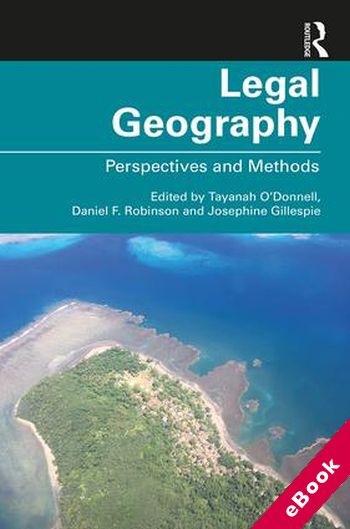
The device(s) you use to access the eBook content must be authorized with an Adobe ID before you download the product otherwise it will fail to register correctly.
For further information see https://www.wildy.com/ebook-formats
Once the order is confirmed an automated e-mail will be sent to you to allow you to download the eBook.
All eBooks are supplied firm sale and cannot be returned. If you believe there is a fault with your eBook then contact us on ebooks@wildy.com and we will help in resolving the issue. This does not affect your statutory rights.
This book is the first legal geography book to explicitly engage in method. It complements this by also bringing together different perspectives on the emerging school of legal geography. It explores human–environment interactions and showcases distinct environmental legal geography scholarship.
Legal Geography: Perspectives and Methods is an innovative book concerned with a new relational and material way of examining our legal-spatial world. With chapters examining natural resource management, Indigenous knowledge and political ecology scholarship, the text introduces legal geography’s modes of analysis and critique. The book explores topics such as Indigenous environmental rights, the impacts of extractive industries, mediation of climate change, food, animal and plant patents, fossil fuels, mining and coastal environments based on empirical, jurisdictional and methodological insights from Australia, New Zealand and the Asia-Pacific to demonstrate how space and place are invoked in legal processes and contestations, and the methods that may be employed to explore these processes and contestations.
This book examines the role of legal geographies in the 21st century beyond the simple “law in action”, and it will thus appeal to students of socio-legal studies, human geography, environmental studies, environmental policy, as well as politics and international relations.